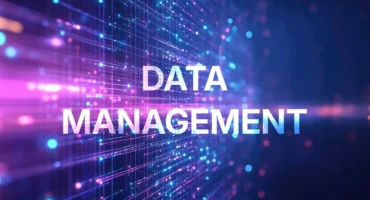
Angsuman Dutta
CTO, FirstEigen
5 Emerging Data Trust Trends to Watch in 2025
As organizations accelerate their data-driven initiatives, data quality is evolving from a manual, back-office function to a core business priority. By 2025, we’ll see a new generation of data quality capabilities seamlessly integrated into analytics pipelines, AI models, and decision-making frameworks. Here are five emerging trends reshaping the future of data quality:
1. Data Trust as a Built-in Feature of Modern Data Lakes
Gone are the days when data lakes were mere repositories for raw, ungoverned information. Forward-thinking organizations now regard data quality and trust as foundational elements of their data architecture. Advanced tools are increasingly embedded directly into data lakes, enabling automated profiling, validation, and cleansing as data moves in.
This paradigm shift ensures that business users and analysts can rely on high-quality data, reducing time-to-decision and maximizing the ROI of analytics initiatives. The result? Enhanced confidence in insights and improved operational efficiency.
2. Data Trust for Generative AI and Advanced Analytics
Generative AI models, such as ChatGPT and their future iterations, are only as reliable as the data they’re trained on. In 2025, data quality solutions will evolve to specifically address the unique requirements of AI and advanced analytics.
Industry leaders like FirstEigen—renowned for automated data quality and anomaly detection solutions—emphasize the importance of curating clean, unbiased training datasets. These solutions ensure rigorous validation at every stage, from data ingestion to preparation and feature engineering. By doing so, organizations can build trustworthy AI-driven systems that deliver actionable, reliable outputs.
3. The Rise of Autonomous Data Quality Rules
Manually creating and managing data quality rules is becoming unsustainable in today’s large, complex data ecosystems. The future lies in autonomous rule generation. Next-generation platforms leverage machine learning algorithms to identify patterns, constraints, and thresholds without human intervention.
These self-learning rules adapt in real time to evolving business requirements and market conditions, ensuring continuous and accurate data quality. By automating this process, organizations can scale their data operations while maintaining trust and precision.
4. 24/7 Data Trust Monitoring
In an always-on digital world, continuous data monitoring is essential to ensure trust and reliability. Advanced systems in 2025 will include features like circuit-breaking mechanisms—automatically halting processes when data quality thresholds are breached—and Data Trust Score (DTS) certifications as a standard service-level agreement (SLA).
This constant vigilance empowers organizations to detect and address issues proactively, minimizing risks and maintaining uninterrupted business operations.
5. Reduction in False Alerts Through Smarter Anomaly Detection
Excessive false alerts can quickly erode trust in data quality systems. Future platforms will address this by deploying refined, context-aware anomaly detection methods. These methods leverage statistical models, machine learning, and domain-specific insights to reduce noise and highlight critical deviations.
By focusing only on significant anomalies, these systems free up data teams to prioritize strategic initiatives over chasing false positives, enhancing both productivity and trust in the system.
The Road Ahead
By 2025, data quality will transcend its traditional role of preventing “bad” data. Instead, it will focus on building resilient systems that ensure consistent, trusted, and AI-ready information flows throughout the enterprise. Integrated frameworks, AI-specific quality controls, autonomous rule creation, automated remediation, and smarter anomaly detection will define the new era of data quality.
Organizations that embrace these trends will gain the confidence and agility needed to thrive in an increasingly complex data landscape. Investing in these capabilities will not only enhance operational efficiency but also transform data into a long-term competitive advantage. The future of data quality is here—and it’s transformative.
Discover How Fortune 500 Companies Use DataBuck to Cut Data Validation Costs by 50%
Recent Posts
Get Started!



